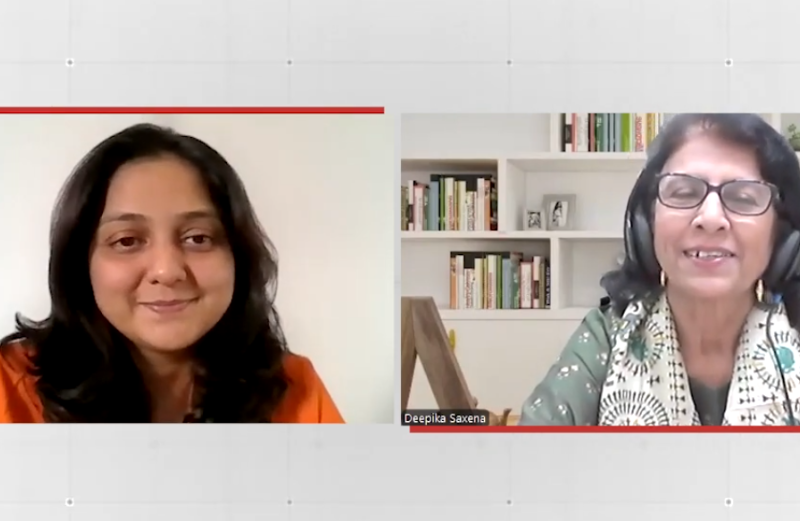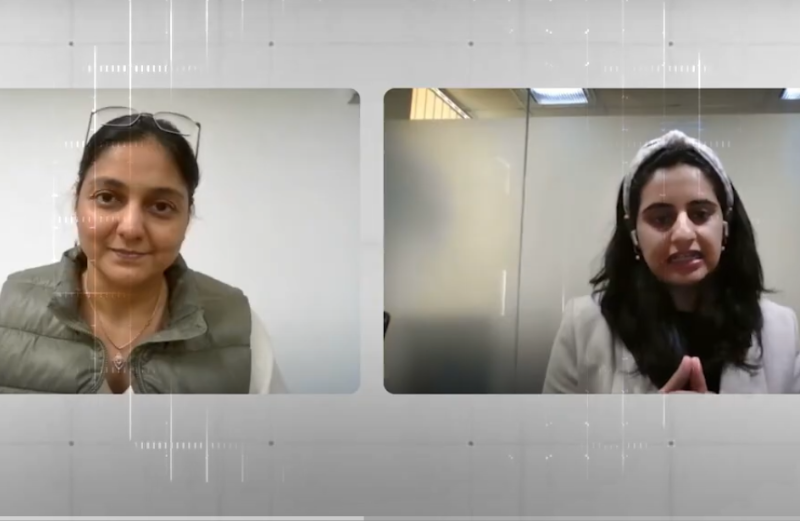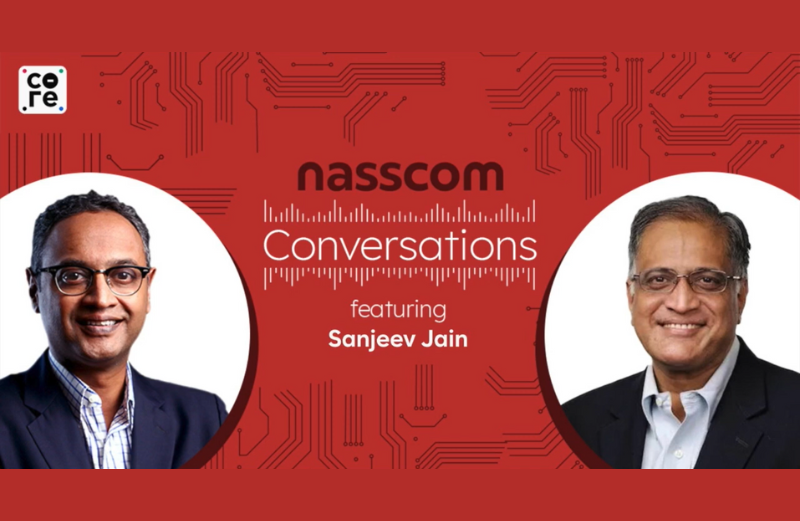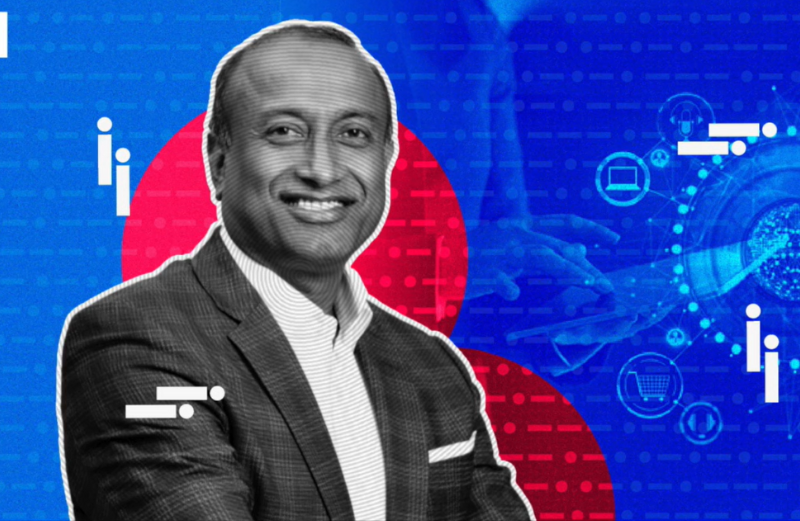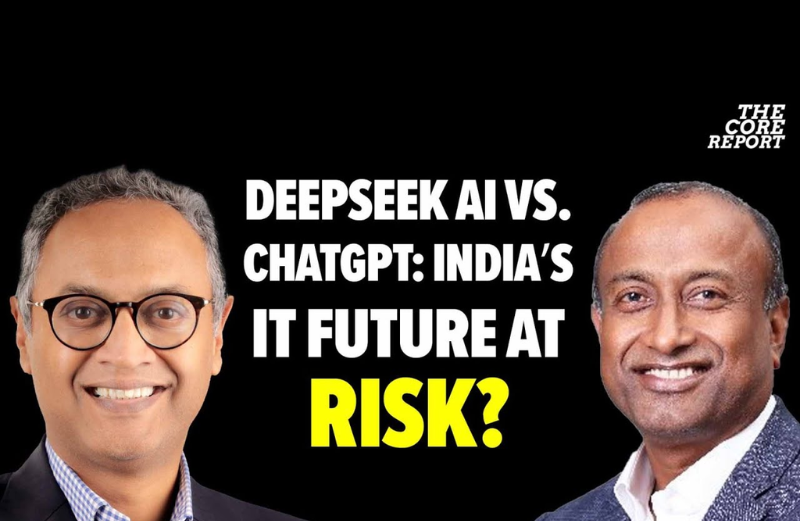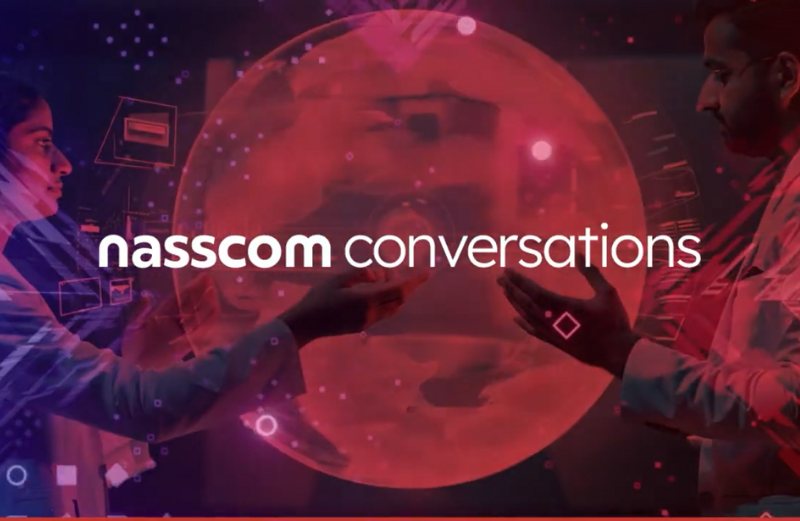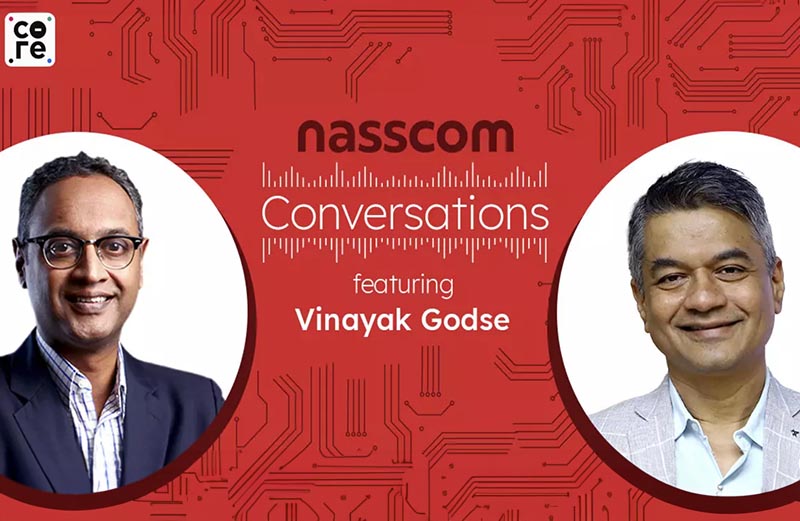Transcript Disclaimer: This transcript has been generated using automated tools and reviewed by a human. However, some errors may still be present. For complete accuracy, please refer to the original audio.
00:00:07 RAJESH NAMBIAR
Hi, Sindhu, welcome. Welcome to the Nasscom's campus in Noida. You know, given the fact that we have so much going on around us, whether it is the geopolitical situation that you see everyday, the tariffs that you, you know, hear everyday from from the US especially, and then the challenges that we go through as an industry. At the same time, you also have enough amount of opportunities, whether it be artificial intelligence, the promise of technology and what the impact of that will be on our business. Now you run one of the largest GCCS for us in India. Other than the fact that you're also cheer Nascom, what has been your challenges in in understanding what what is next for the for SAP overall as well as you know when you see the industry, what are you seeing as opportunities out there?
00:00:59 SINDHU GANGADHARAN
Now I think if I just reflect upon all the things that's happening around us, Rajesh, you're absolutely right. I mean, particularly in these times, the conversation that that we see in all board rooms, right, it's all about, of course, everybody's clear that they have to have their transformation said. They are all very clear that AI is changing their business in multitude of ways. They're also looking at us at Nasscom to really help guide and shape their industries. But at the same time, what, what you also see is a lot of CIOs/CEOs still having this whole question on all the geopolitics, all the tariffs, like you said, those conversations. But one thing that is consistent, Rajesh, is the fact that India has been absolutely in a very strong position in terms of how we have really stood resilient to all the different things that's happening around us, right? I mean, clearly India is seen as the strongest player when it comes to technology and kind of that leadership around how we are serving the needs of global enterprises out there, helping them navigate their transformations, right?
I think that has been front and centre today. Pretty much every nation out there is also looking India, how we can help them and their businesses in their in different parts of the world navigate this kind of change, right? And the reason for that is also over the over the last decades, we've invested so much as as Nasscom and as a nation in terms of building that kind of resilience when it comes to technology, thought leadership, right? And some of the GCCS, like, I mean, if I just reflect on my role at SAP as well, I've been, we've also leveraged the power of India and the tech's ecosystem in India in a very beautiful manner, right? Today, we are more than 25 years in existence here in India. And the reason that this is continues to be a strategic growth location for us is purely because of the fact that today India, I mean, it's not just about tech exporting or, or consumption of tech. The creation of technology, the creation of innovation is happening from here for the world, right? And, and this is applicable not just to SAP, but for the GCCS at large. Today, what we have over 1700 GCCS operating out of India. And today that conversation is no more about, hey, we are the back office of our headquarters. Not at all, right? The conversation is more about how are we building innovations from India for the world, how is IP getting created here, how are the product owners getting shaping up the narrative for their organisations and the products that they take to market. So that's a phenomenal shift that has happened and that and I think it's also a perfect time, especially in this very tough geopolitical situation that we are part of to have that strong resilient focused vision when it comes to technology thought leadership.
00:03:57 RAJESH NAMBIAR
And do you think that these organizations, as they mature over a period of time, do you see them doing things very differently over the next four or five years, especially around the GCC ecosystem?
00:04:09 SINDHU GANGADHARAN
Yeah, I think what is happening pretty much at least if I just look at some of the GCC's that are focused very much on leveraging the power of AI. There's a lot of IP creation when it comes to also looking at how AI solving some of the the problems or challenges or the business processes that customers are are going through, right. And literally looking at how AI can shape the narrative, relook and re imagine those processes from from with the power of generative AI. And there's so much happening around the ecosystem. And I think the beautiful thing here is also this melting pot of bringing together the ecosystem, bringing together also they the, the start-ups, bringing together the academia, bringing the corporates together. And this is a nice play of, of not just focusing on your pieces, but also seeing how do you benefit from the power of the partnership that we have here in the ecosystem. And that's a lot happening. And I think we at Nascom, we are also helping creating those platforms for these kind of ecosystems to thrive and to benefit from each other's strength. And I think that is something that's playing out beautifully across GCCS here in India.
00:05:23 RAJESH NAMBIAR
And you know, I totally agree though, I mean you, you see that happening every single day. You know, as I said, you know, almost you know, one or two GCCS, we tend to open this the centers in India every every single week is what we're seeing, right. So the 1700 may go to 2200. The one element which was a little bit of a concern for the industry overall was while there was been a lot of investments over the last several years with the new in some sense especially from the United States, a little bit of tariffs on one side, but also a notion that you know USA first type of mentality. Will this investments continue to happen in around the world for the betterment of the companies and what they want to try to do or do you see a bit of a challenge for them to do this? I know that SAP is not a U.S. company and I know that when you look at US as well, are they going to be doing more with a country like India? Are they going to be less given everything else?
00:06:21 SINDHU GANGADHARAN
No, I think see one of the given the like what I said earlier, right. I mean, there is a phenomenal power when it comes to the talent, right? This is, I think a very key element of this whole equation. 1 is the innovation, IP creation, what I talked about earlier. But that is only possible because of the strong talent that we have, tech talent that we have. And like I said earlier, I mean, of course we will talk about global investments that happens that that's natural, right? But when it comes to also core technology IP creation, a lot of that is shifting towards India, right? I mean, large organisations today, it's very normal to say that big part of that whole IP creation is happening from India for the world. And that's a common thread that I, that I hear in most of the conversations. And I think we have to, if we have to keep that edge when it comes to that talent strength, Rajesh, this is also why we at Nasscom, we have this very strong focus when it comes to also how are we looking at consistent upskilling of our talent? Because technologies are changing very rapidly. I mean, pretty much every day out there, there's a new model, there's new ways in which you can leverage technology, There's new kind of benchmarks being broken by the next model that is being deployed. So that pace is very, very fast. So in order to keep up with that pace, I think that interlock between our young talent with what's happening in the industry becomes super important, right? Because then they know how to apply the technologies that they are using and they're comfortable with to real life problems. And this is also where we at Nasscom, we've been very focused, as you know Rajesh to really bring together and create those strong partnerships between the academia, the industry, and between our start-ups as well. So that we have that the possibility to share, learn from each other, apply what we, what we learn into real life problems. And that I think needs to continue if the investments also needs to continue, right, Because we want to shorten the time between when we have an engineer on the job and the time that she or he takes to to get on solving some of those business critical problems to shorten. And that can only happen if that interlock really gets stronger, which is also what we're focused on.
00:08:40 RAJESH NAMBIAR
I couldn't agree more with you. And as you know in Ascon, we've also had a sort of a regenerated focus on, on the GCCS. We're going to be participating in the, the national GCC framework with the government and making sure that we are making, doing everything possible for the, for the ecosystem to do better and then grow, continue to grow. But there is also this notion, at least you know, promoted by maybe some of the consultants that this global roles which the GCC will have to own. For example, you know, your own, you have not only an India role within SAP, you also have a global role. So the global roles at the GCC's play, there are two ways of looking at it in one, in one end, yeah, it makes sense for them to have those global roles and they're important. But is it really important to have those global roles in these GCCS to to ensure that they grow, the relevance grows over a period of time with the parent companies? What is your thought on?
00:09:33 SINDHU GANGADHARAN
This is a question that I get of often asked. Rajesh, you're not the first one to ask me that question. And how much relevance do we want to play on this global roles? I mean, absolutely it is important there's no quest but but that's not the only measure of success, right? That I think is also important to to note because for me, what is an important measure of success of a GCCS also how far they have matured in that maturity model, right? Because what is for me more important is how much of the, the product ownership in terms of creating of those products, the designing of those products is multiple roles, right? Be it from designers to architects to use user experience designers to to the data scientist that are part of the core team, the machine learning experts who build those and most importantly also the process experts and the industry experts who understand what they are building for. That thought leadership in terms of what are we building for. And the the maturity along those lines is what I think is also an important measure of how far a GCC has come. And not necessarily only in terms of how many global roles do we have or that is, I think it's, it's really about that thought leadership, the customer centricity that the GCC has, the collaboration within the ecosystem and driving for business outcomes, which is I think the core measure of success and that which also needs to be talked about and that increases the relevance of that GCC.
00:11:02 SINDHU GANGADHARAN
Exactly. It's not necessarily just how many roles.
00:11:05 RAJESH NAMBIAR
Right. No, no great insights. Thank you so much. But I want to close with one final thought. You know, one would think that in the over the last, especially through 2-3 years, the, you know, you know, the D CS have, you know, they've been significant growth in the number of GCCS. Yeah. And one would say that the reason why they grew so fast is because of FOMO, which is the fear of missing out from some of these companies. And you both of us know that it's not the case. But if it is not the FOMO and then you know, if you there are people who are considering, OK, we've got to do this in India, but they also have this question saying that why India? Why now Do you have a message for them saying that people have not done this before? What would be the thing that need to weigh in before they sort of plunge into this and saying that, okay, we got to have a GCC in India?
00:11:48 SINDHU GANGADHARAN
I think now very important message that I would say Rajesh is it's India now. There's no question about it, right? If you don't have a strategy around it, better get your act together, right? That, that is absolutely clear because like I said, the innovation is happening from here for the world. And also when we are talking about phenomenal tech talent, phenomenal AI talent, 16% of the world's AI talent is here in India serving the world, right? So if you don't have a strategy around plans around investing when you're talking about technology here in India, I think the train has already moved, but you might as well get on to that very quickly if you have not already. And here at Nasscom, we are also there to help also navigate that way forward. Also sharing also the best practices from the best to those who are, who are coming into this space now and what they should do and how they can really kind of accelerate upon that path forward. So I'd say the time is now and it's no more a question, right?
00:12:53 RAJESH NAMBIAR
Beautifully said. Thank you Sindhu. It's always a pleasure chatting with you.
00:12:56 SINDHU GANGADHARAN
Thank you so much Rajesh.
